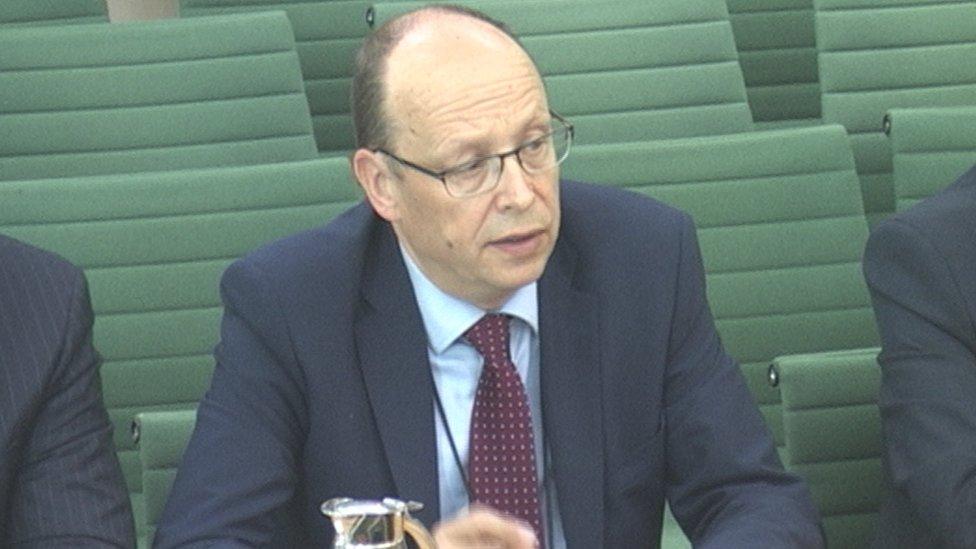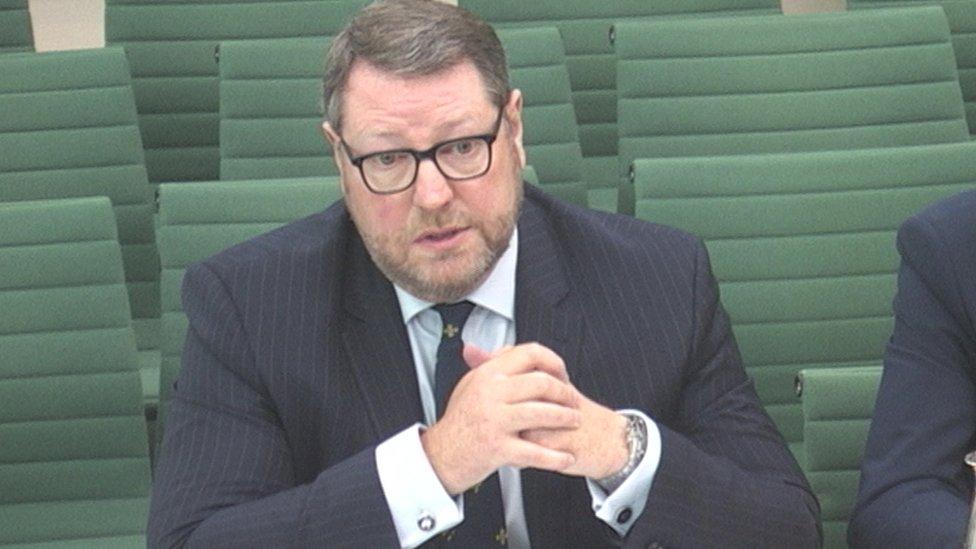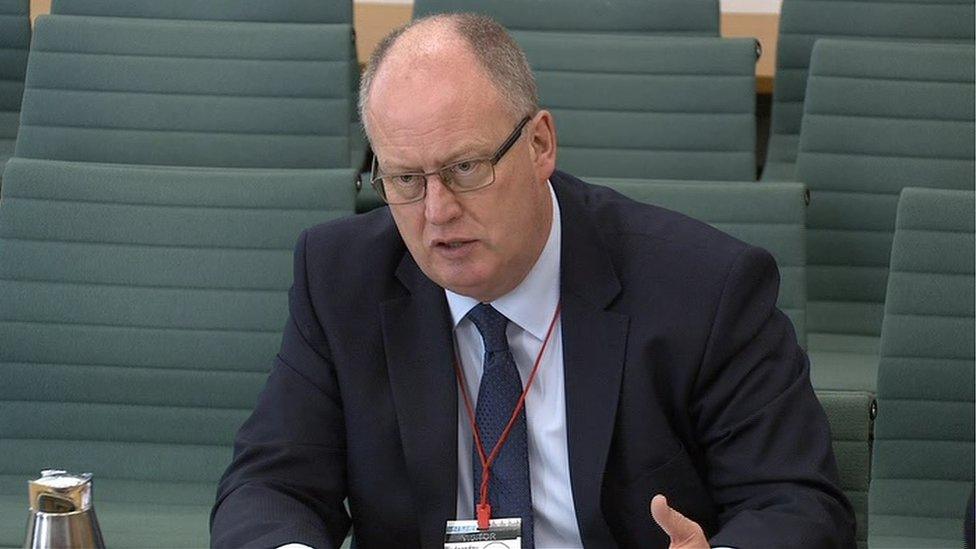Brexit: Governments agree plans to replace European Arrest Warrant
- Published

The Irish and British governments have agreed arrangements aimed at replacing the European Arrest Warrant after Brexit, a Westminster committee has heard.
But a senior civil servant, Peter May, said it would be a "slower and more resource intensive process".
He is the permanent secretary at Stormont's Department of Justice.
The EU has already said the UK will not be able to use the warrant after Brexit.

Peter May is the permanent secretary at Stormont's Department of Justice
It allows EU members to request the arrest and detention of criminals in other countries without extradition talks between them.
Mr May said finding a suitable replacement to the warrant was more important in Northern Ireland than in the rest of the UK because of the frequent cross-border engagement between the Police Service of Northern Ireland (PSNI) and An Garda Síochána (Irish police).
He was appearing before Westminster's Home Affairs Committee on Wednesday to discuss preparations for Brexit.
'Pressure likely to increase'
PSNI Deputy Chief Constable Stephen Martin said any replacement would be "sub-optimal" to the current system of extradition.
He revealed that from September 2018 until August 2019, the PSNI generated 38 European Arrest Warrants; 26 to the Republic of Ireland and 12 to other EU countries.
The PSNI had received five requests from the Republic of Ireland and 44 from other EU countries, he said.

The PSNI's Stephen Martin appeared before Westminster's Home Affairs Committee
Mr May said he did not believe any replacement measures would be better than the warrant scheme but added: "We believe it is a viable means of ensuring extradition can continue to happen."
He told MPs the replacement would rely on the 1957 Council of Europe Convention on Extradition,, external which pre-dates the European Arrest Warrant.
During the hearing, MPs were also told that pressure on the PSNI's operations was "likely to increase" if a no-deal Brexit happened.
Mr Martin said: "If we saw economic shock and businesses fold, farms fold... I think the pressure on policing is likely to increase as people become distressed and engage in criminality."
He has previously warned that dissident republican activity could rise and that the Irish border could become a target for violence.
Mr Martin said a lot depended on the nature of how the UK leaves the EU, adding that it was "highly foreseeable" that the scale of cross-border crime could increase if a disorderly Brexit occurs.
Meanwhile, Chief Constable Simon Byrne said police are ready for a no-deal Brexit.
Senior commanders have carried out detailed planning with other organisations in the country and across UK policing.
They tested officer numbers, equipment and planning scenarios, he added.
"Up to now I have seen no evidence to show that we are not match fit, but equally I am old enough in the tooth to know that no plan survives contact with the enemy, which is the old phrase from D-Day, I think," he said.
"As I sit here today, I am really confident in the plans I have seen and went through yesterday."
- Published19 June 2018

- Published9 September 2018
